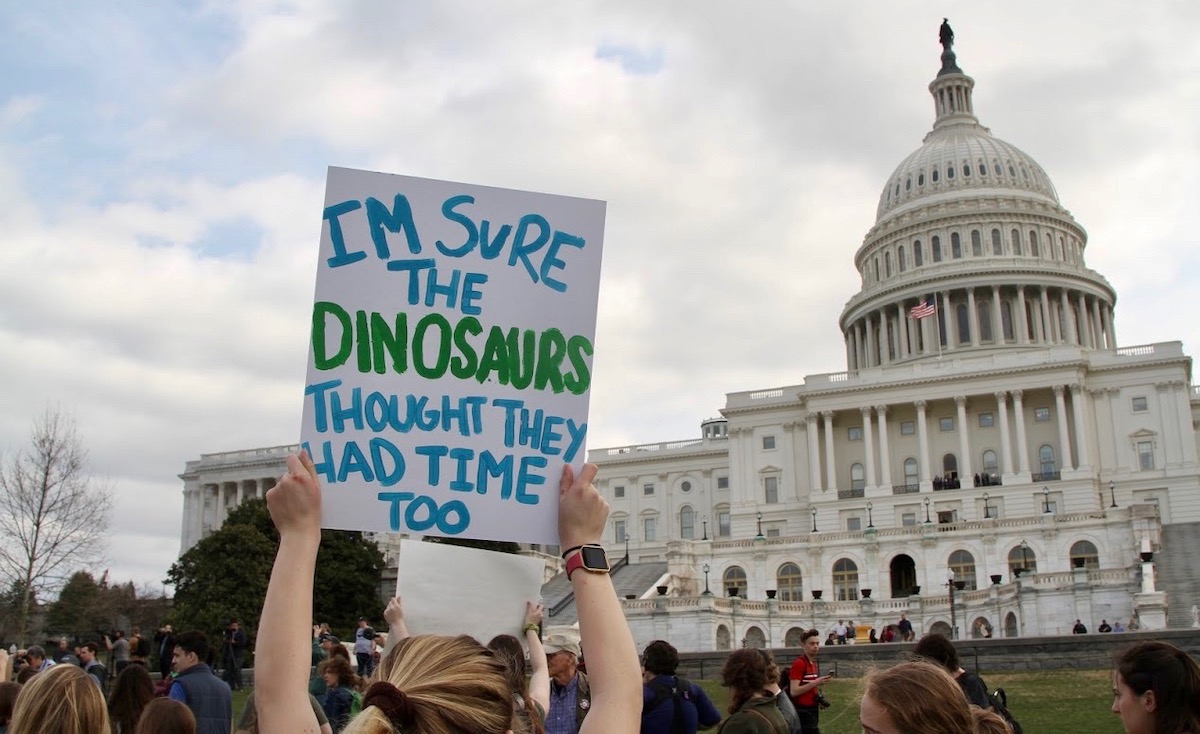Scientists have global temperature data going back to the mid-nineteenth century, when Charles Dickens was just hitting his stride and Abraham Lincoln's political career appeared to have fizzled out after a single term in Congress. Out of all those years, the 20 hottest have been in the past 22. The four hottest have been the last four.
Anyone should find those facts alarming. But for the youngest generation, which has never known a world that wasn't getting hotter year by year, alarming is only the beginning. For them, the climate crisis is immediate, personal, and incredibly frustrating. Immediate because they can see the consequences right now. Personal because the prognosis of even more catastrophic warming directly jeopardizes their futures. And frustrating because older generations, having squandered decades, are still falling short of the minimum action necessary to stabilize the climate (and in the case of the Trump administration are perversely working to make things worse).
Has any generation of humanity ever had better reason to be furious with their elders? And yet, when an estimated 1.4 million young people around the world skipped school last Friday to demand climate action, the dominant theme wasn't anger, it was determination. No one represents that attitude better than Greta Thunberg, the extraordinary 16-year-old from Sweden who inspired the school strike movement, and who is absolutely fearless when calmly speaking truth to power:
"United we will rise until we see climate justice. We demand the world's decision-makers take responsibility and solve this crisis. You have failed us in the past. If you continue failing us in the future, we, the young people, will make change happen by ourselves. The youth of this world has started to move and we will not rest again."
She's been nominated for a Nobel Peace Prize and would certainly get my vote.
Now the #SchoolStrike4Climate movement that she began has reached the US, with protests in cities across the country from Washington, DC, to Portland, OR. Here in the Bay Area, the biggest march may have happened in San Francisco, but the most significant one for me was co-organized right in my own community by a young activist I've known for 16 years: my daughter Olivia. When she was interviewed by local media, I couldn't have been prouder if she had been addressing the United Nations:
"When we were trying to organize people and we were telling people to come to the march, the most common thing we heard was, 'Who is going to listen to us, we're just students,' I want to tell people you don't have to feel powerless, you don't have to feel like because you're young you can't make a difference. We have a voice, our voice matters."
I can remember when the prospect of turning 40 years old seemed unimaginably distant, but I never worried that the world would be unrecognizable when I got there. But that's the situation today's youth find themselves in, and they are demanding accountability from the generations that have put them there. As Greta Thunberg told delegates at COP24 last December: "You say you love your children above all else, and yet you are stealing their future in front of their very eyes...."
Our children are raising their voices and demanding to be heard. They're not doing it to shame us (though we should be ashamed). They're trying to wake us up. The world still has time to act with boldness, but that time is rapidly diminishing. Here in the US, for instance, the Green New Deal offers a practical plan for meaningful, effective climate action. Are we prepared to do that, or are we content to watch our leaders to fiddle as the planet burns?
Our children want to know.
